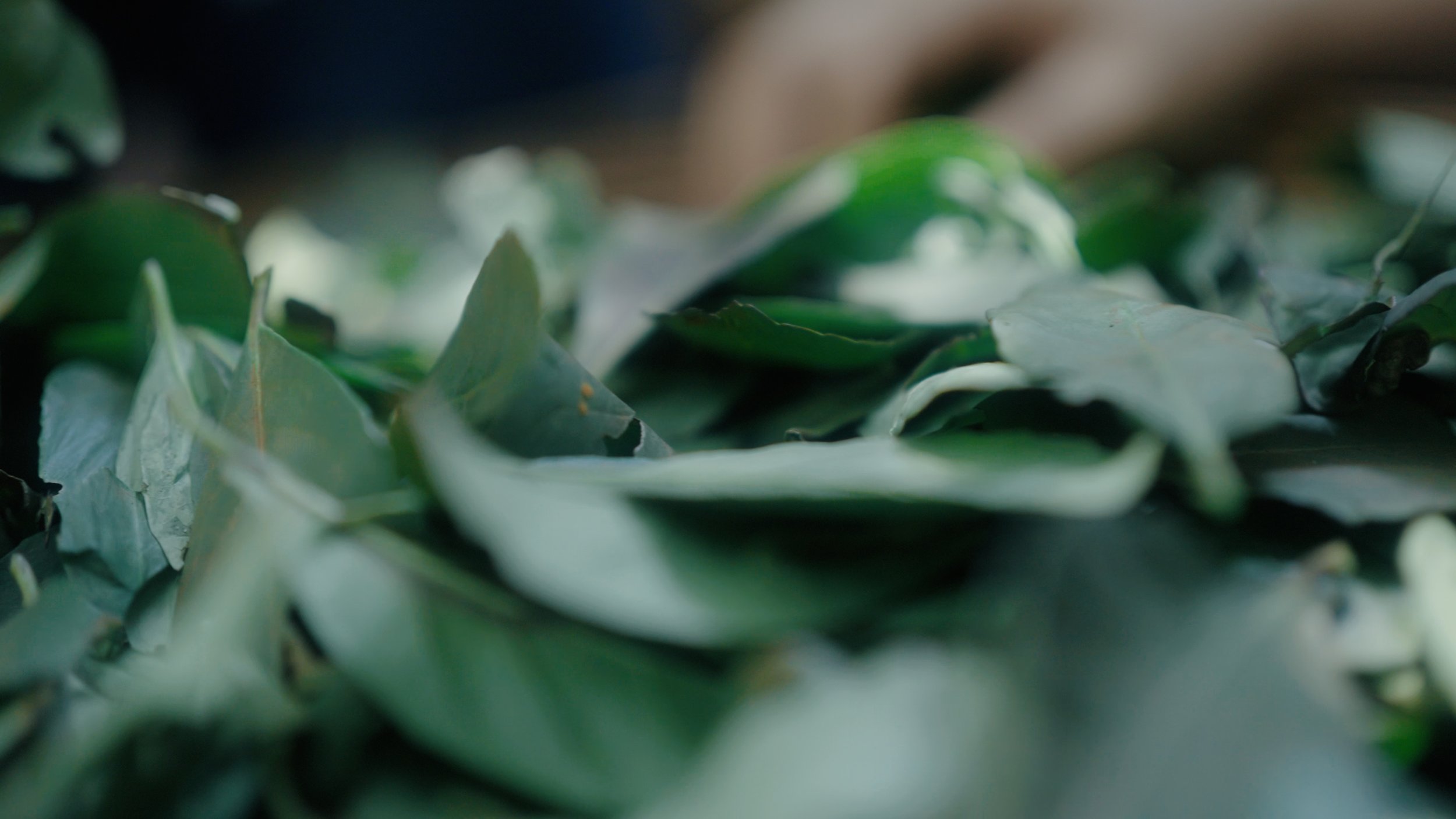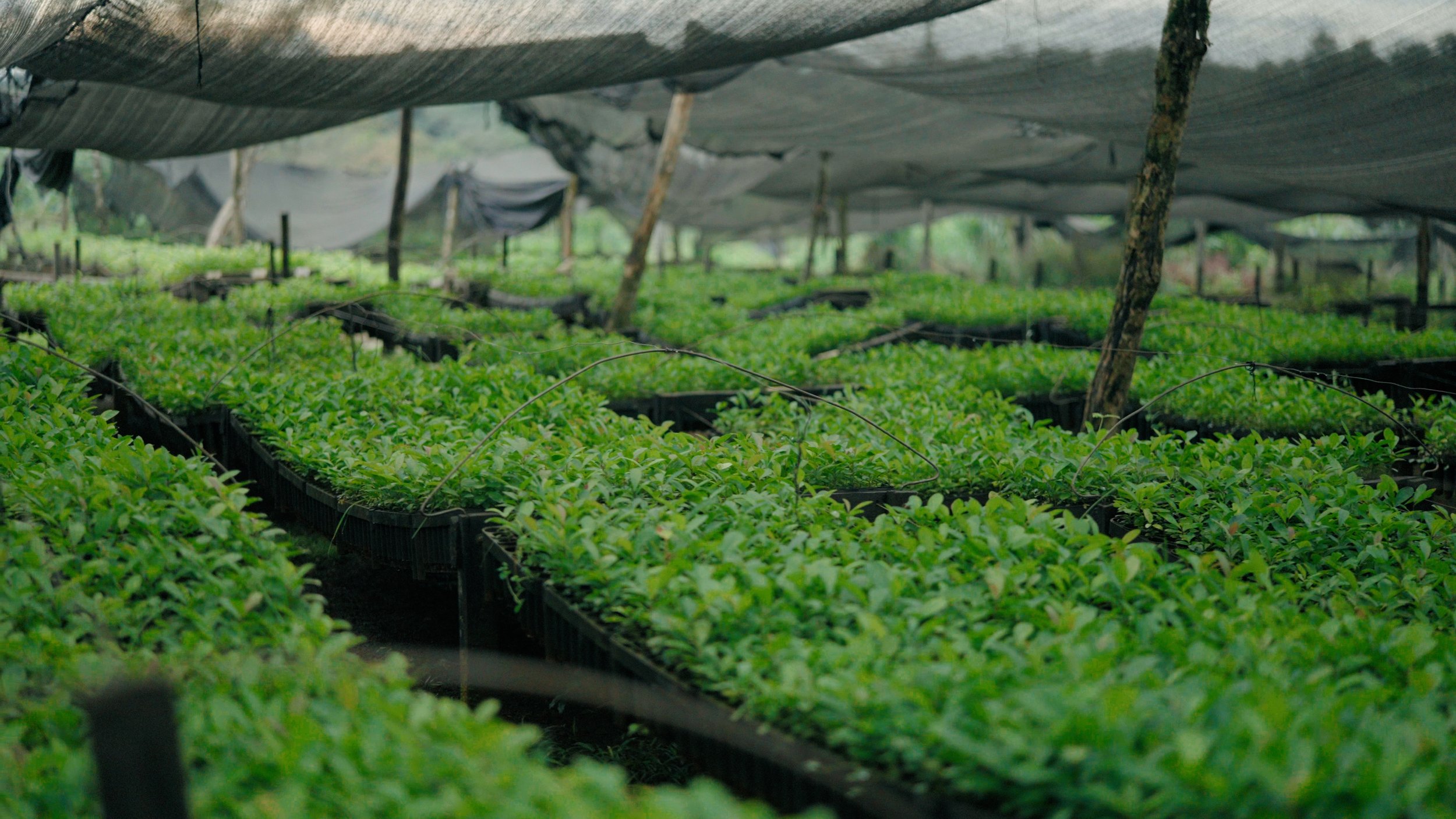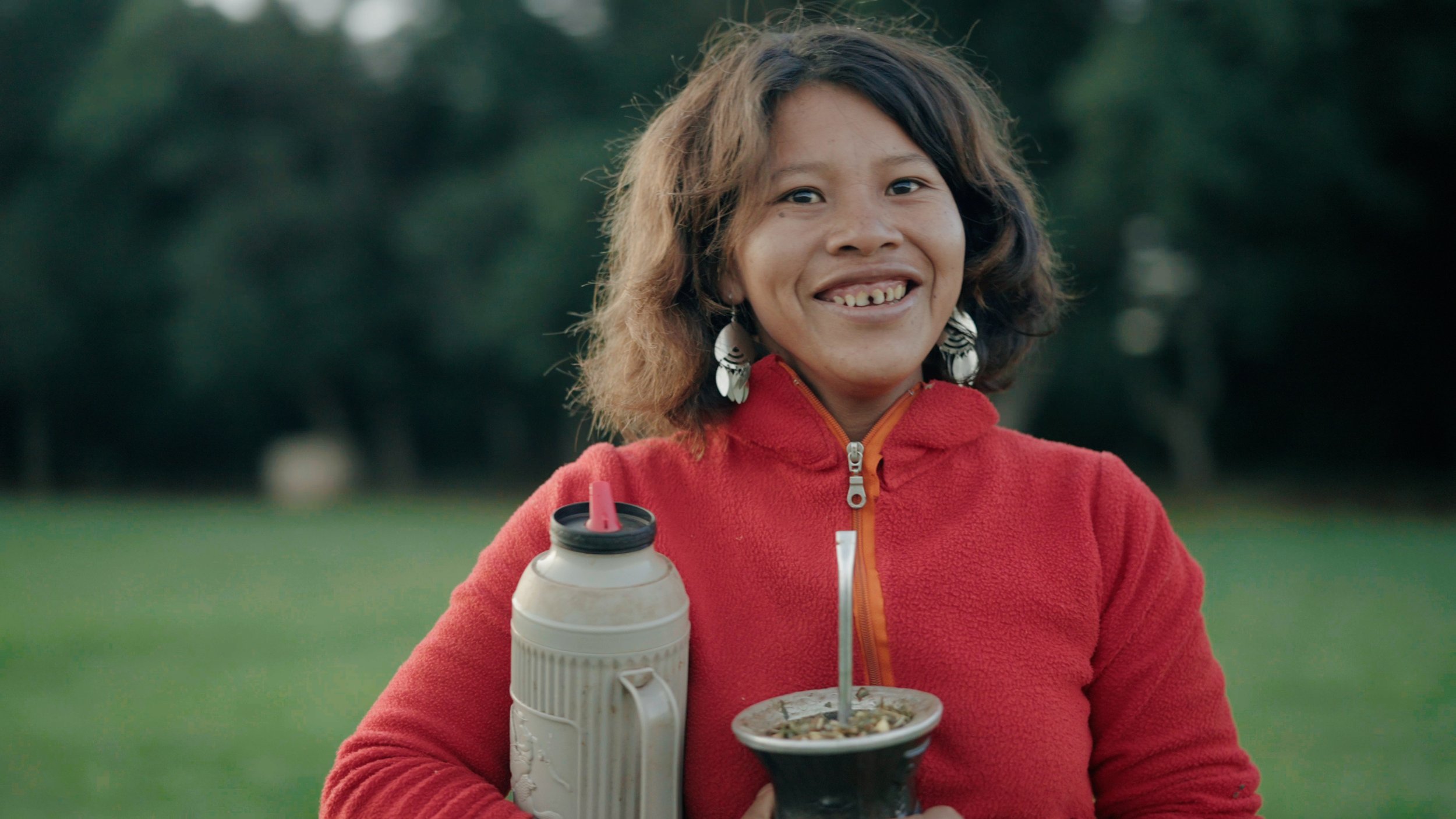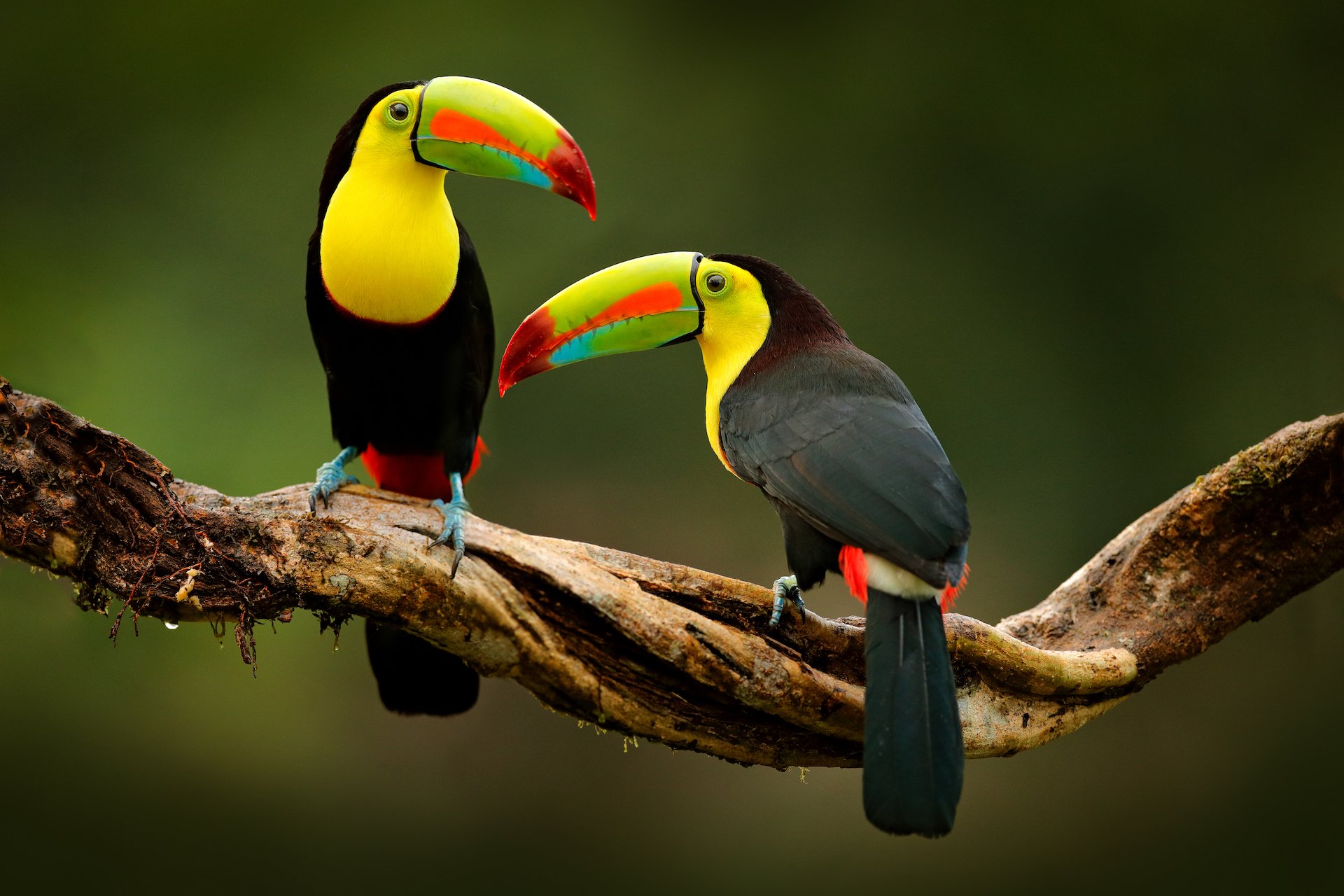
What Sustainability Means
First and foremost, we are producing world class yerba mate. The best practices for the health of the plant are also the best practices for the health of our planet.
It is rare for a company to make money while making a positive impact. We are in that position.
Our Three Pillars
Carbon Footprint
Water Management
Social Impact

Carbon Footprint
Through the implementation of cover crop and non-tillage soil management, our farmers are playing a role in mitigating their carbon footprint.
More plants equal more carbon sequestration. By the end of 2022, we will have provided our Tukadores with close to 75,000 yerba mate plants and germinated seedlings, along with 50,000 seedlings of native tree species that, when planted, will form the canopies that not only protect the fledgling yerba mate plants as they grow to maturity. These measurable steps, in combination with other best environmental practices, are just some of the things we are implementing as we work toward carbon neutrality.

Water Management
Responsible water stewardship is key to our business. We are in the process of attaining accurate measurements of our existing water usage, as well as identifying all of our water sources, as a baseline to benchmark our operations against the highest applicable standards.

Social Impact
Sustainability starts with the indigenous people of Paraguay who have cultivated yerba mate for generations, harvesting the ancient leaves by hand. The same people who have heartbreakingly witnessed soybeans and other crops encroaching on and continuing to threaten their very heritage and way of life.
But the economic reality is that the life cycle from planting to harvest of soybeans is only 45 to 60 days, compared with 4+ years for yerba mate. We don’t believe that farmers should be forced to decide between survival and what is ultimately best for their family, community and planet. Sustainability means providing these farmers with a choice.
And what’s good for our Tukadores is good for the planet, as we together take small but measurable steps toward the gradual restoration of over 500 acres of family farms located within the endangered Bosque Atlántico (Atlantic Forest), an area which is second only to the Amazon in ecological diversity.
Facts & Figures from World Wildlife Fund
The Atlantic Forest is home to around 20,000 species of plants. Some 450 tree species have been found in just one hectare.
More than 52% of the tree species and 92% of the amphibians in the Atlantic Forest are found nowhere else in the world.
6,000 plant species, 263 amphibians and 160 mammals, including 22 primate species, are endemic.
There are also thousands of species of birds, mammals, reptiles and amphibians, including endangered jaguars, golden lion tamarins, woolly spider monkeys, maned three-toed sloths and red tailed parrots.
WWF has awarded the Paraguayan government with the Leaders for the Living Planet Award in recognition of its efforts to conserve the Upper Paraná Atlantic Forest.
One of our Tukanes formerly worked with WWF and is taking a leading role in educating Tukanes and Tukadores alike so that we are better aligned with WWF’s stated goal of ending deforestation, protecting and improving the management of the world’s forests, and helping restore forest landscapes across the world by 2030.
These efforts will assuredly bring about the return of our namesake, the Tukã or Toucan, to their natural habitat.

Welcoming the Toucans Back to their Homes
Toucans spend most of their lives within the rain forest in the canopy, or top layer, of the tallest tree-tops where they can find all the food that they need.
Yerba mate produces clusters of white flowers that mature into bright red berries, a favorite food source of these beautiful birds. And the birds do their part as well, since the acids in their digestive tracts are essential in breaking down the yerba mate seeds’ hard outer shells, thereby enabling them to sprout.
“Although it has taken more than a decade to return my land to the traditional cultivation of organic yerba mate, I knew I was on the right track when the toucans returned.”
~ A Tukador



